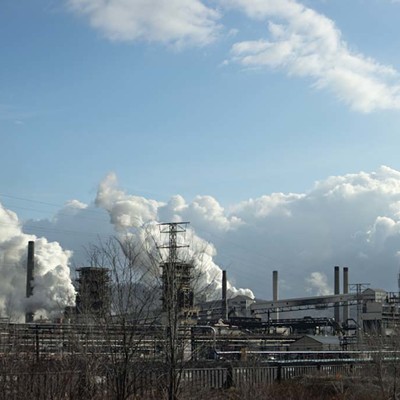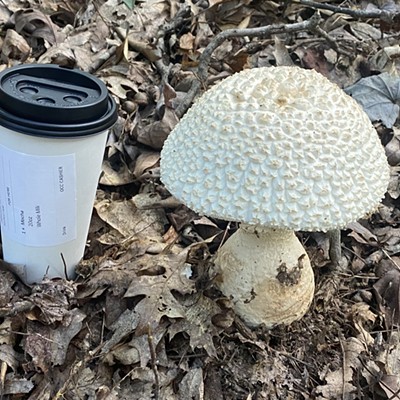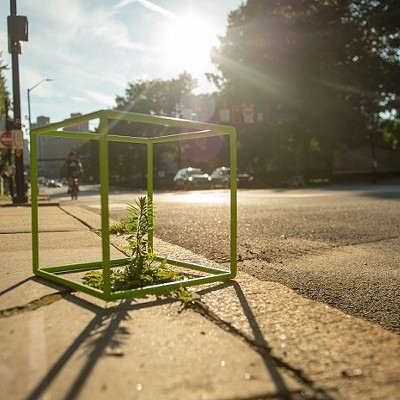As little as five years ago, corn ethanol and other biofuels were widely hailed as a solution for everything from declining oil reserves to climate change. Americans grow corn in abundance and, as ethanol, the grain emits much less pollution than does gasoline.
Today, thanks to government mandates and subsidies, the U.S. makes more ethanol than ever: Up to one-third of the country's corn crop is cooked into the 13 billion-plus gallons of ethanol that's blended with most gasoline.
But one trouble with the ethanol boom, as many have noted, is that it probably raises food prices: Though we're growing more of it, corn now costs about $7 a bushel -- more than double the price before 2007's federal Energy Security and Independence Act, which mandated making more biofuels.
Less noted is what a bad deal corn ethanol is environmentally. Just how bad is emphasized in a new study from researchers at Carnegie Mellon University.
Scientists who do cradle-to-grave "life-cycle assessments" of industrial processes have long noted that the energy (usually from fossil fuels) required to turn crops into liquid fuel reduces environmental benefits. Others note that industrial agriculture is itself environmentally ruinous, largely because of all that fertilizer and water.
The CMU researchers built on more recent life-cycle studies of what's called "indirect land use." That's the new land where you now sow corn to feed humans and animals, to replace the acreage lost to ethanol.
Such "indirect" lands are liable to be far away and ecologically sensitive, says Michael Griffin, one of the CMU researchers. Think of places like Brazil's grasslands, or the rainforests of Indonesia. To turn such places into farms, we burn the wild plants and plow the soil. Both activities release heat-trapping carbon dioxide, and farmed soil sequesters less carbon than natural landscapes do. Intensive farming also leads to runoff of nitrogen-rich fertilizers -- like those that have washed down the Mississippi River into the Gulf of Mexico, where they create an oxygen-starved "dead zone" the size of New Jersey.
When deciding how much ethanol we should make, policymakers rely partly on life-cycle assessments. The CMU researchers wanted to know how sure we are that the life-cycle impacts policymakers assign are accurate.
The answer: not very sure, mostly because of uncertainty surrounding the wheres and hows of indirect land use. In their article in the January issue of Environmental Science & Technology, the researchers noted, for instance, that some soils grow corn better than others -- resulting in differing rates of fertilizer usage, and the emissions associated with manufacturing and applying it. Emissions for a given quantity of corn ethanol can vary by a factor of five, depending on how it's made. Griffin and colleagues concluded that policymakers who use an "average" figure to estimate emissions might issue rules that increase emissions, rather than lower them. "If you don't take the uncertainty into account, [the policy] could fail," says Griffin, executive director of CMU's Green Design Institute.
In any case, corn ethanol is likely an even bigger greenhouse villain than gasoline. And it compares poorly with second-generation biofuels like switchgrass, which researchers found much more likely to reduce emissions substantially.
So why are we still making all that ethanol? Daniel Sperling, a University of California-Davis professor and transportation expert, blames America's corn lobby, which regards ethanol mandates and $8 billion in subsidies as a profitable blend.
Sperling believes good policies can account for uncertainty. But that won't make corn ethanol a better choice. Rather, Sperling promotes more efficient cars, smarter standards for renewable fuel -- and more investment in stuff like switchgrass and biofuels from waste products, like wood.
Why not avoid all uncertainty about biofuels, and promote alternate forms of transportation? Bicyclists, for instance, don't worry about gas mileage. Walkers need not check whether their tires are properly inflated.
Sperling agrees a gas tax could pry people from their cars. But, he tells CP, "It would have to be very large to have a big effect. That would be a good idea. But politically [it's] the least likely, so I don't even talk about it anymore."














